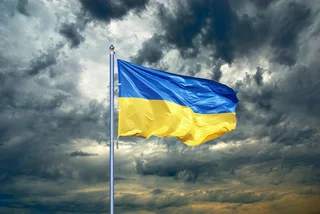The Czech government has unveiled tentative plans for a unique initiative aimed at facilitating the voluntary return of refugees to Ukraine. The plan, which is outlined in the draft sixth amendment to the “lex Ukraine” law, will see the Czech government providing assistance and partial coverage of associated costs for those opting to return.
This move comes as the country seeks to address the recently increasing demand from refugees wishing to return to their homeland. While acknowledging the ongoing challenges in Ukraine, the Czech government believes that offering support to those desiring to return is a step in the right direction.
PARTNER ARTICLE
Widescale state support
The voluntary return program will involve the Czech Ministry of the Interior arranging transportation (paying for it) and providing free guidance with regards to paperwork. Eligibility for the program extends to asylum seekers, individuals with revoked or non-renewed residence permits, as well as those who were previously deported. To address the perceived inadequacies of the existing general rules, the government will establish a specialized program to ensure flexibility and effectiveness.
Under the new scheme, the Czech government will offer financial aid to assist with repatriation costs. However, this support will only be a one-time provision. To ensure commitment and responsibility, returnees who subsequently apply for a long-term visa in the Czech Republic within a specified timeframe will be required to reimburse half of the aid provided. The government emphasizes that failure to repay the assistance would render the application for a residence permit invalid.
Around one-quarter plan to return home
Some refugees are reportedly considering returning due to recent changes in support systems, making it challenging for them to meet their basic needs. Despite this, Labor Minister Marian Jurečka has contested these claims, asserting that the adjustments have, in fact, led to increased refugee participation in the workforce.
Statistics from the Voice of Ukrainians survey co-conducted by PAQ Research reveal shifting sentiments among the refugee population. In June, 25 percent of refugees expressed a definitive desire to return home, down from 33 percent a year ago. However, 50 percent of respondents remain steadfast in their decision to remain abroad. The United Nations High Commissioner for Refugees has urged host nations not to compel refugees to return, emphasizing that the decision to do so should be entirely voluntary and informed.
As the situation in Ukraine continues to evolve, the Czech Republic's initiative to provide assistance for voluntary returns underscores the complexity of the refugee issue. While offering aid to those who wish to return, the government also recognizes the need to ensure that the decision is fully informed and free from undue pressure. This delicate balance between support and individual agency remains at the forefront of the Czech Republic's approach to managing the refugee situation.













 Reading time: 2 minutes
Reading time: 2 minutes 




























